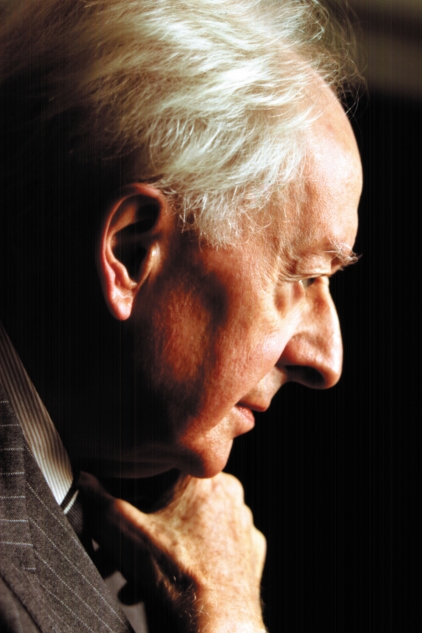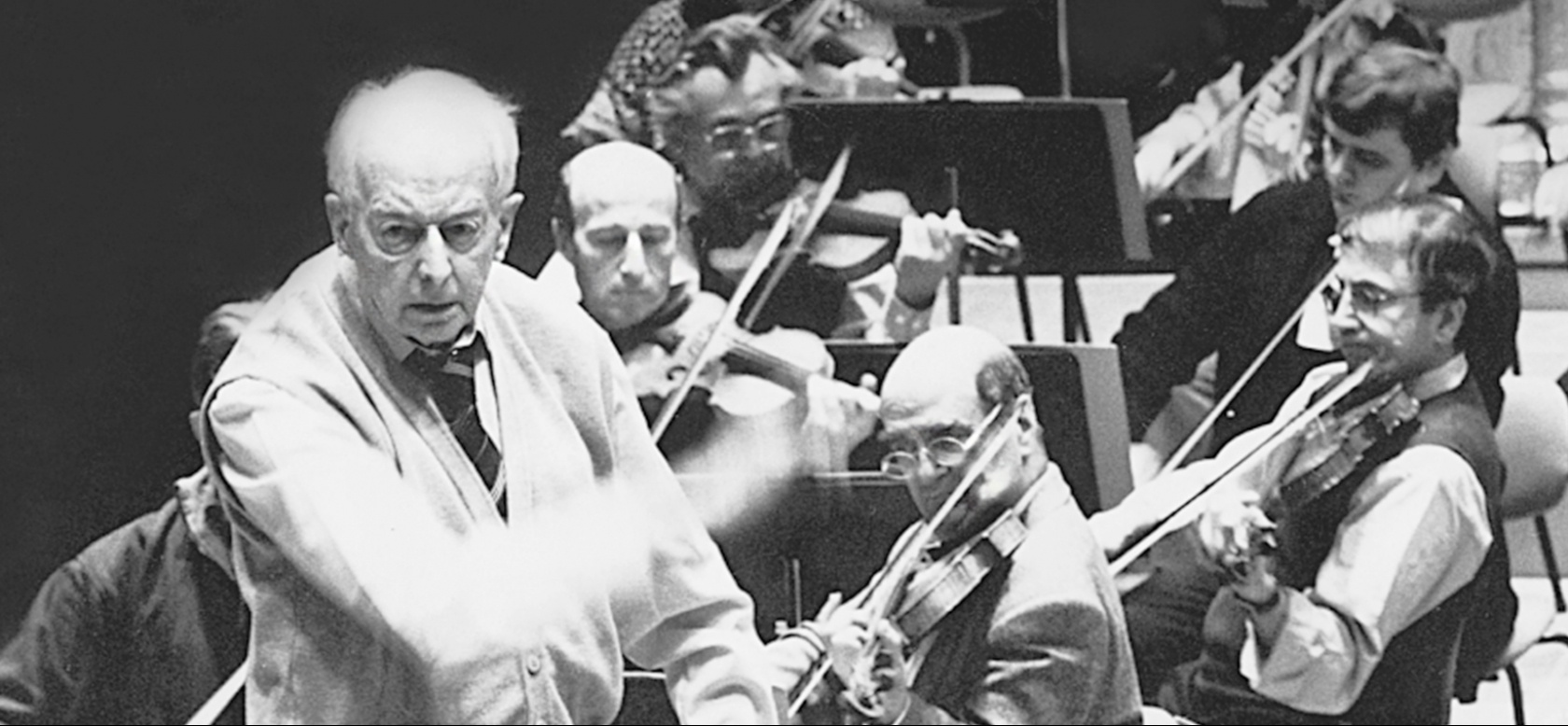The first Conductor Laureate

Günter Wand stood on the orchestra podium in Berlin’s Philharmonic Hall on 9 April 1996; for three years, he had been the DSO’s First Guest Conductor. He had programmed symphonies by Beethoven and Brahms, two lynchpins of his repertoire. It was the last of three consecutive concerts that were intended at the same time to conclude a triumphant collaboration. Shortly thereafter, the DSO appointed Günter Wand as its first honorary conductor – a title which thus far, apart from him, has been conferred only on Kent Nagano ten years later.
Wand was already 71 years old when he conducted the DSO for the first time – and yet the height of his musical career still lay ahead of him. His belated fame as an internationally sought-after artist personality was preceded by a classical career as a Kapellmeister. Born in 1912 in Elberfeld bei Wuppertal, Wand gained his initial experience conducting operas and operettas on small stages in his hometown, in Allenstein and later in Detmold. In 1939 he was appointed first conductor at the Cologne Opera, where he was engaged to rebuild the music scene after the war. One year later, the City of Cologne appointed him Generalmusikdirektor, and shortly thereafter director of the Gürzenich Orchestra, an ensemble with a rich tradition. Under the aegis of Wand for almost 30 years, the ensemble developed into an impressive orchestra.
Late fame
In the postwar years, Wand developed the great classical and romantic repertoire and established himself at the same time as an emphatic proponent of new music, bringing not only classics of the modern era back to concert life, but also responsible for a great number of world and German premieres, including of works by Bernd Alois Zimmermann, Wolfgang Forner and Olivier Messiaen. Wand increasingly attracted interest, and received invitations to Berlin, Munich, Paris, Chicago and Tokyo, as well as from the BBC and the German radio orchestras. As early as 1959, he was the first West German conductor to be invited to conduct concerts in what was then the Soviet Union. He was propelled to the top of the conducting world with his complete recordings of Bruckner’s and Schubert’s symphonies at the helm of Cologne’s Rundfunk-Sinfonie-Orchester (now the WDR Symphony Orchestra), released starting in 1977. At the age of 70, he took over the chief conductor position with the NDR Symphony Orchestra; after the end of his legendary tenure, he stayed closely associated with the orchestra as honorary conductor until the end.
Triumph in Berlin
Günter Wand conducted his first concert with the DSO, then still called Radio-Symphonie-Orchester Berlin, in April 1983. They played Bruckner’s Fifth, Wand’s “fateful symphony,” which the conductor dared to tackle only at a relatively late age, and the recording of which had helped to establish his late fame a few years earlier. From then on, he maintained a regular connection with Berlin. He conducted the DSO with almost 20 programmes through 1996; the concerts were always highly acclaimed, featuring in particular the programmatic heavyweights Beethoven, Brahms, Bruckner and Schubert.
A lion’s share of the concerts he conducted – as well as public rehearsals in the scope of the ‘Workshops’ series, which the DSO held in collaboration with RIAS – were recorded by RIAS and the SFB. Today, they are available in two award-winning collectors’ editions, issued by Profil Hänssler between 2009 and 2012. The recordings document the work of a conductor who considered himself the advocate of the score, who endeavoured with great dedication to transmit the idea of a work to his audience. Although steeped in spirituality, his interpretations were by no means pretentious – meticulous but always inspired. His interpretations set new standards, and his concerts bestowed bright hours on Berlin’s musical life. Günter Wand died in 2002 at the age of 90 in his Swiss residence in Ulmiz.
